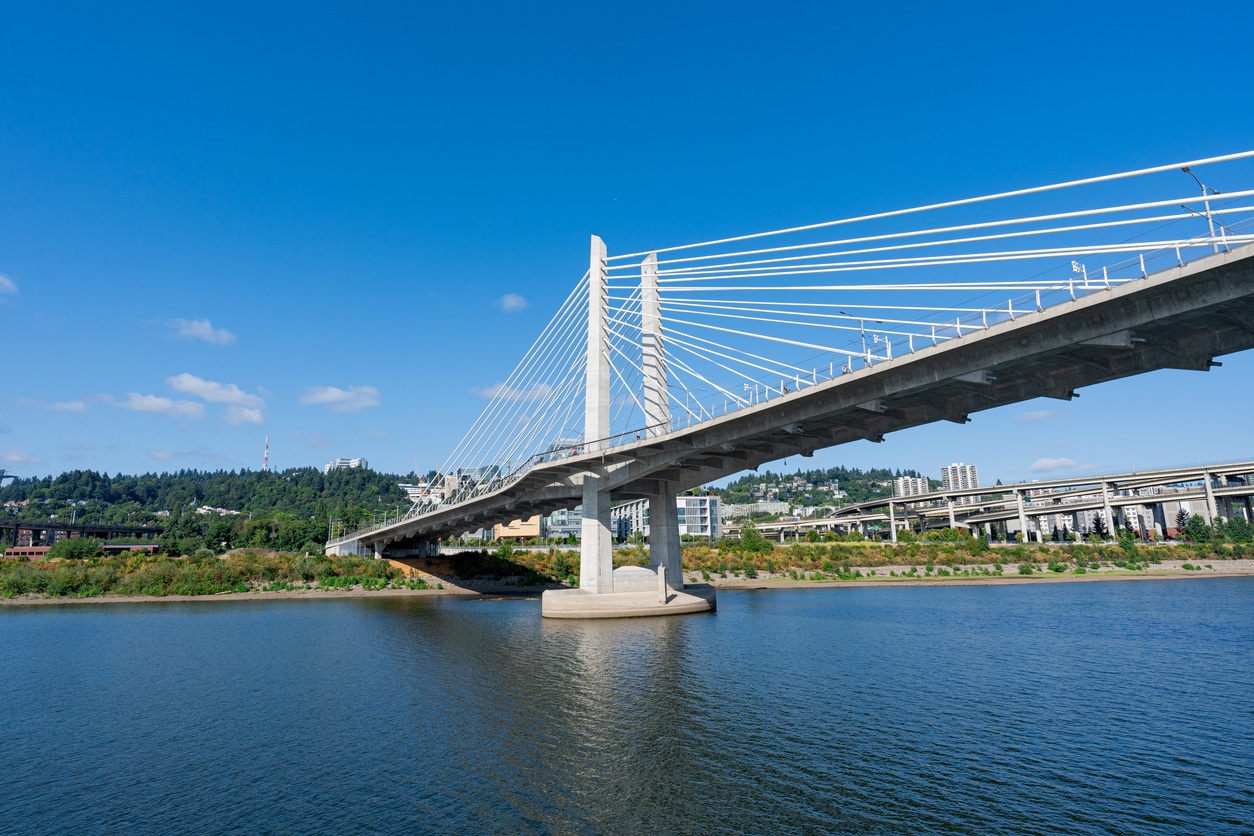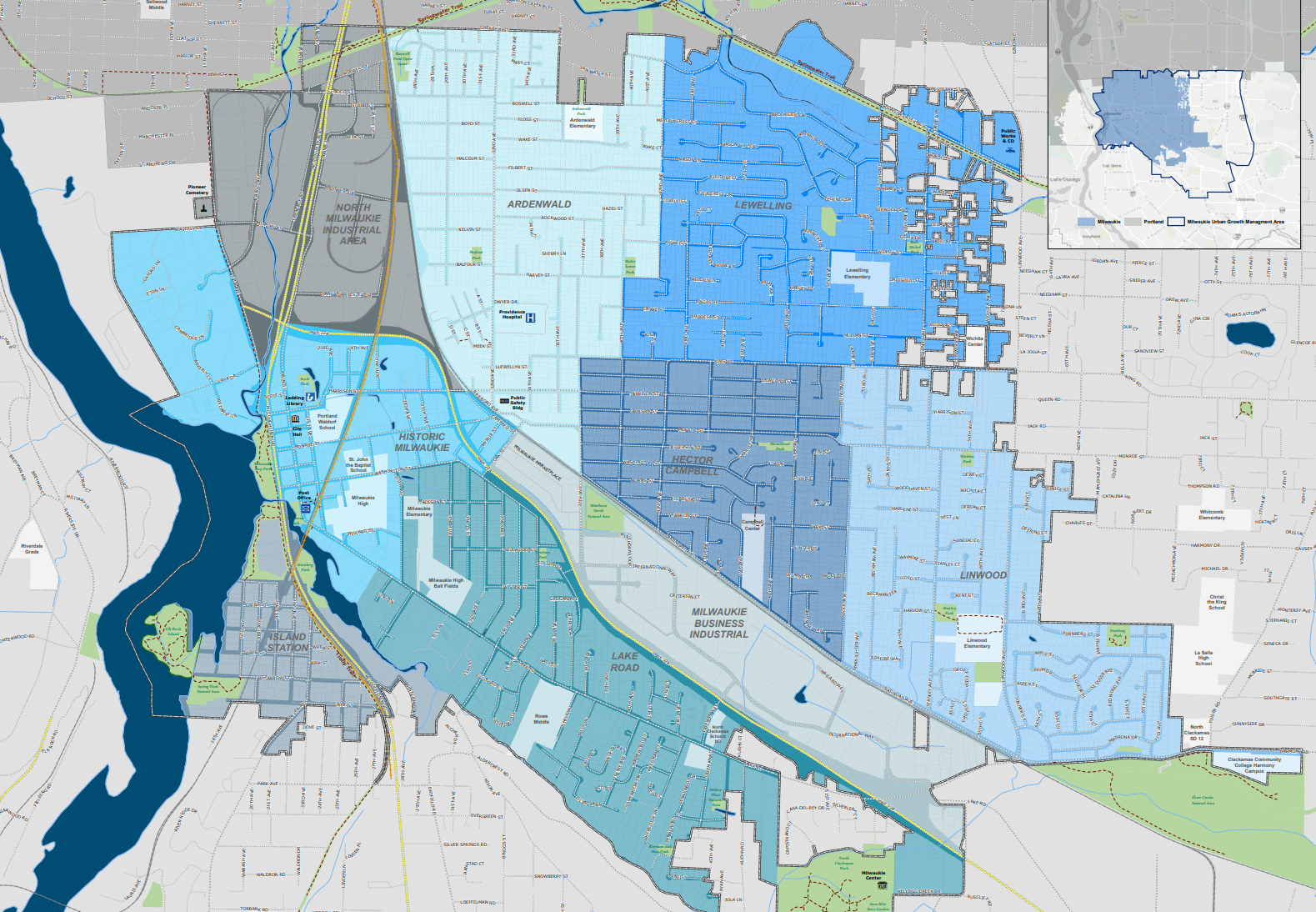Shhh: Here are Portland’s Quietest Neighborhoods

Updated 06/2024.
If quiet is on your list of potential home traits, you aren’t alone. For many people, home is a place that feels peaceful and relaxing, and “quiet” is an important part of that equation. The desire for it is so strong that high noise levels directly equate to lower home values. But even with pricing as a warning sign, ensuring your new home is in a quiet area can still be challenging. A neighborhood’s true noise levels often go undiscovered until too late.
Portland tries to keep noise at bay. The Portland Police Bureau states, “No excessive noise is allowed in the City of Portland between the hours of 10:00 pm and 7:00 am.” (You can find examples of possible noise complaints and submit a Portland noise complaint here.) Still, this doesn’t keep non-excessive noises from happening. Delivery trucks can back up at 4:00 am with loud beeping noises, partiers can play music outdoors after midnight, and neighbors may take up a spirited game of pickleball, such as in the suburb of Lake Oswego.
Noise is a part of life in any city, and those born and raised in the big city may not mind it and may even desire it. Still, you’ll be happy to know that some parts of Portland are quieter than others.
Let’s learn about noise pollution and how to avoid it when choosing a home in the Portland real estate market.
Noise Pollution, the Invisible Menace
Noise pollution, or excessive exposure to high-decibel sound, is real and becoming more of a problem in today’s urban environments. Whether the sound is from leaf blowers, lawnmowers, jets passing overhead, or simply a loud HVAC system, noise can contribute to several stress-related problems, including cardiovascular disorders, ulcers, sleep disturbances, and lower performance scores in school children.
Now that we’ve moved further from the start of the pandemic, many kids are no longer learning from home. However, a large number of us are still working in home offices and haven’t returned to work in a traditional office environment. An increased number of workers are finding that their homes need to be places where they can remain as productive as when they are in an office. In addition to noise being a general nuisance, it can now distract from our careers. Excess noise can lead to physical and psychological stress, reduction in productivity, and interference in communication.
Data on Noise Pollution
Both the World Health Organization (WHO) and the Environmental Protection Agency state that prolonged exposure to noise can lead to significant health issues. Examples include poor sleep, cardiovascular issues, poorer work and school performance, and hearing impairment.
The American College of Cardiology found that people living in noisy areas were more prone to heart attacks than those living in quieter areas. It has also been confirmed broadly that noise pollution can lead to sleep deprivation that exacerbates mental health issues like anxiety and depression.
A 2022 study from Rutgers’ Robert Wood Johnson Medical School revealed that one in 20 heart attacks in urban settings may be due to noise pollution. The study found that “Those who live near busy roads, public railways, and airports are at a significantly higher risk of suffering cardiac events that cannot otherwise be blamed on individual health issues or air pollution.”
Both WHO and EPA recommend a noise threshold of 55 dB, a surprisingly low threshold considering that a normal conversation typically occurs at around 60 dB. WHO recommends less than 30 A-weighted decibels (dB(A)) in bedrooms for quality sleep and less than 40 dB(A) of annual average (Lnight) sound outside of bedrooms to prevent adverse health effects from night noise.
Noisiest Neighborhoods in Portland
Here are some areas worth avoiding if you are sensitive to noise.
Northeast Portland
To better understand the issue with Northeast Portland, it helps to understand noise in more detail. Noise pollution can be split into two categories: (1) Abrupt or alarming sounds that tend to get called in as noise complaints and (2) constant background noise from nearby freeways, airports, or industrial activity. The second type of noise pollution tends to be accepted as “part of the deal” for living in certain neighborhoods, but it can turn up the decibels to a constant 80 dB in some residential areas, the equivalent of standing next to a vacuum.
A Harvard study published in Environmental Health Perspectives found that constant background noise tends to be the highest in low-income and racial minority neighborhoods because the neighborhoods tend to be situated near industrial parks, roadways, and airports. This trend holds true in Northeast Portland, which is home to historically black neighborhoods adjacent to Portland International Airport. In fact, the area is currently targeted for an expansion of the I-5, which residents say will increase noise pollution.
Downtown Portland
Other Portland neighborhoods rank among the “noisiest” because they bring more noise complaints, as viewed in the City of Portland’s noise complaint map. Unsurprisingly, the downtown Portland area “wins” for the number of noise complaints related to construction, loud music and amplifiers. Inner southeast Portland has a concentrated number of similar complaints as well.
Portland’s Main Thoroughfares
Outside of the downtown area and southeast, the only noticeable pattern of noise complaints appears near thoroughfares like Sandy Boulevard, Burnside St., and Division St., where bars and restaurants also tend to be clustered.
Windy Areas of Portland
Some residents have complained of wind noises from the Columbia River Gorge. Although these areas are outside the city of Portland, be aware that communities from Troutdale to Corbett may experience some naturally generated howls and gusts. While the noise level of wind may not be immediately apparent, long-term exposure to the sound can become easily irritating.
Portland, Oregon Noise Complaint Map
Click the image to go to the online map.
Features of Quieter Neighborhoods in Portland
Just as certain factors lead to noisy neighborhoods, some environmental elements help keep some areas quiet. No area is completely devoid of noise, but here is a list of the features of some neighborhoods that mitigate it.
- Distance: How far is the neighborhood from the nearest “point source” of noise, like a freeway, airport, construction site, or factory? It goes without saying that those sensitive to noise should seek our residential roads where unnecessary traffic is not likely to pass through. Rural areas may seem quieter, but they can be subject to noise from farm equipment, logging operations, trains, or other activities.
- Density: Let’s face it: Humans are noisy. The more people living in a neighborhood, the louder it is. Portland population densities range from over 15,000 people per square mile (in the Goose Hollow neighborhood near downtown) to the low hundreds of people per square mile, where homes are larger and/or farther apart. All other factors aside, the less populated an area is, the quieter it will be.
- Trees & Greenery: Not only do trees actually absorb sound, they also create distracting “white noise” (rustling of leaves, birdsong etc.) that can help mask some of the more disturbing noises in your environment. The same is true of other types of greenery, like shrubs and bushes, etc.
- Culture: All types of neighborhoods generate noise; it may come down to the type of noise you prefer. For example, some neighborhoods may be overrun with 6:00 am leaf blowers, while others might be silent through sunrise, but turn up the bass when the sun goes down. A good way to determine if your habits or noise preferences will mesh with an area where you are interested in buying a home is to spend time observing the neighborhood at different times throughout the day and week. This will paint a helpful picture of the possible noise scenarios you might encounter while living there.
Here are Our Top Picks for *Quieter* Portland Neighborhoods
Northwest Heights
Situated above the massive Forest Park and with a population density of just 3500 people/square mile, Northwest Heights is about as quiet as you can get within the Portland city limits. It had zero noise complaints in the last year (as of this writing), and it’s a long (and winding) 4 miles to Highway 26, the nearest major road.
Find available homes in Northwest Heights
Southwest Hills
With many small parks and lower-density neighborhoods, this area of Portland is also one of the quietest and most convenient. Although it is closer to the I-5, the hilly landscape and abundant green space may help absorb some of the sounds. The overall layout and population distribution of the Southwest Hills neighborhood go a long way toward creating a quiet atmosphere.
Find available homes in Southwest Hills
Roseway
Located in NE Portland, Roseway is a fairly quiet area. While it is comparatively a higher density neighborhood, it had relatively few noise complaints. And though it is situated closer to the airport, it manages to remain a peaceful pocket of Portland. The fact that the Rose City Golf Course borders the neighborhood’s southern end greatly contributes to reducing its noise levels.
Find available homes in Roseway
Sumner
(Honorable Mention). While it is close to the airport and affected by environmental noise from planes, it has had zero noise complaints over the last year. If the occasional airplane overhead doesn’t bother you, this is a place you could call home without worry of loud interruptions.
Find available homes in Sumner
Portland’s Efforts to Combat Noise
Here are ways Portland’s local government is tackling noise issues.
Portland’s Noise Program
As mentioned earlier, the Portland City Council implemented noise ordinances that limit construction noise, set quiet hours, and address noise from nightlife and entertainment venues. The city’s Noise Review Board helps enforce the rules.
The Noise Review Board plays a key role in the urban planning of Portland. The six-member board of volunteers includes three technical professionals and three citizens. The board offers guidance to the City Council on emerging sources of noise pollution while the city conducts urban planning.
The group’s Noise Program enforces regulations set by Title 18 of the city’s Noise Code, focusing on the following:
- Amplified sounds (music, events, parades, amplified announcements)
- Commercial and industrial operations
- HVAC
- Motor vehicle noise from a specific property or location
- Home-powered tools and other equipment
- Leaf blowers
- Construction and construction equipment
The public can report these disturbances by using the online noise complaint form.
In addition to the efforts of the Noise Review Board, Portland also designates areas for industrial activities and ensures a buffer zone between residential areas and noisy zones.
Noise Mitigation Strategies Closer to Home
If you plan to move to a noisy area or just want to make your home quieter overall, here are some strategies you can adopt:
Soundproofing
Install double or triple-pane windows or stripping around doors and windows. For walls and ceilings, install soundproof drywall, acoustic panels, and thick curtains. Go even further by adding more insulation and decorative soundproofing on walls.
Landscaping
Just like with neighborhoods, your directly property can benefit from landscaping. Trees and shrubs, hedges and dense foliage absorb sound waves, reducing noise from streets or neighbors. Water fountains also work well as white noise, drowning out other sounds.
Interior Furniture
Have you ever been in an empty home and noticed a loud echo? That is partly because of a lack of furniture. Elements like bookshelves, heavy furniture, and carpets or rugs block exterior noise and also reduce interior sound. You can also install wall hangings and tapestries.
Search for Quiet Portland Homes Online
Our real estate search engine, Portlandhomesforsale.com allows you to enter keywords and filters like area, price, and number of bedrooms. Try entering “quiet” in the Custom Keyword Search field and see what comes up! Even easier, ask our top 1% Portland buyers’ agents, and we’ll be happy to create a custom list of homes for you to browse. Give us a call today at 503-714-1111 or chat with the bot on this site. We’d love to connect!


